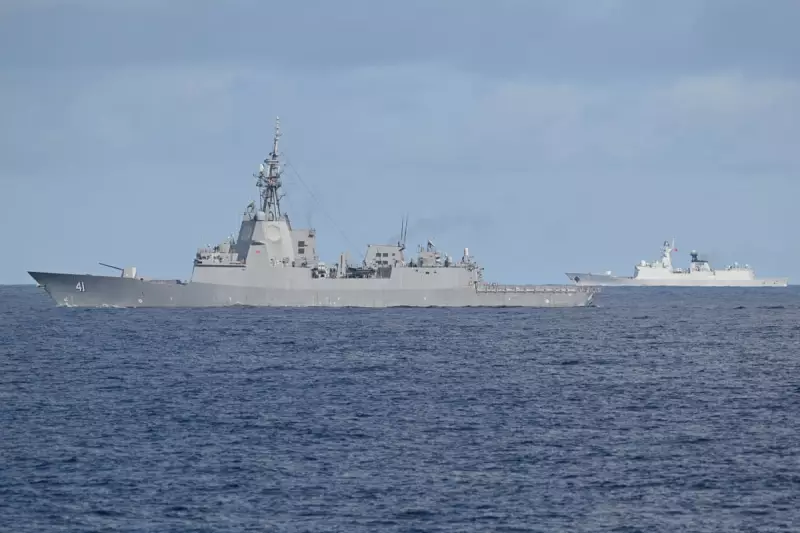
A significant naval encounter has heightened tensions in the strategically vital Taiwan Strait, with the Chinese military shadowing and condemning the passage of Australian and Canadian warships through the contested waterway.
The People's Liberation Army (PLA) closely monitored the allied vessels, accusing them of deliberately provoking regional instability and jeopardising peace in the area. Chinese defence officials stated their forces tracked the ships throughout their transit, ready to respond to any perceived threats.
Beijing's Strong Condemnation
In an official statement, a Chinese defence spokesperson characterised the allied passage as a 'serious violation of China's sovereignty and security'. The move, according to Beijing, represents a calculated attempt to test China's resolve in what it considers its territorial waters.
The Chinese military has emphasised its commitment to maintaining a strong defensive posture in the Taiwan Strait, which it regards as part of its internal waters rather than international territory.
Allied Presence in Contested Waters
The Australian and Canadian navies have maintained that their transit through the strait was conducted in accordance with international law, exercising the right of freedom of navigation in international waters. This latest passage continues a pattern of Western naval presence in the region that has increasingly drawn Beijing's ire.
Defence analysts note that such transits, while legal under international maritime law, carry significant geopolitical weight amid growing tensions between China and Western nations over Taiwan's status.
Regional Implications
This incident represents the latest in a series of confrontations in the South China Sea and surrounding waterways, where competing territorial claims have created flashpoints between China and other nations. The Taiwan Strait remains particularly sensitive, serving as a crucial shipping lane and military strategic chokepoint.
International observers are watching these developments closely, concerned that such encounters could escalate into more dangerous confrontations if diplomatic channels fail to ease tensions between the involved parties.





